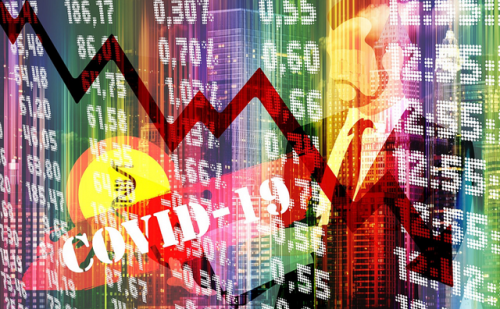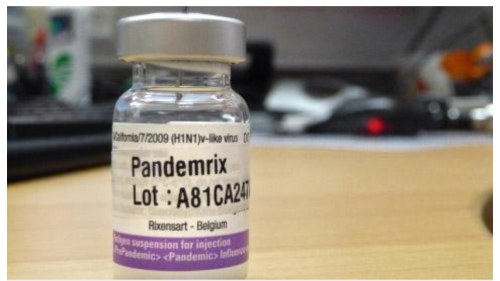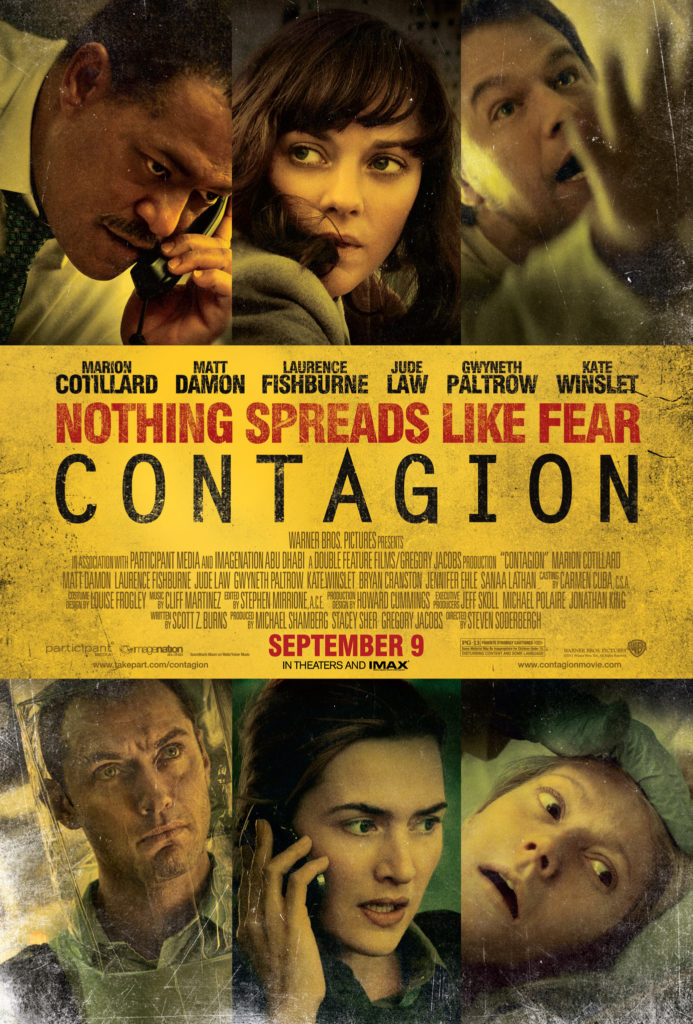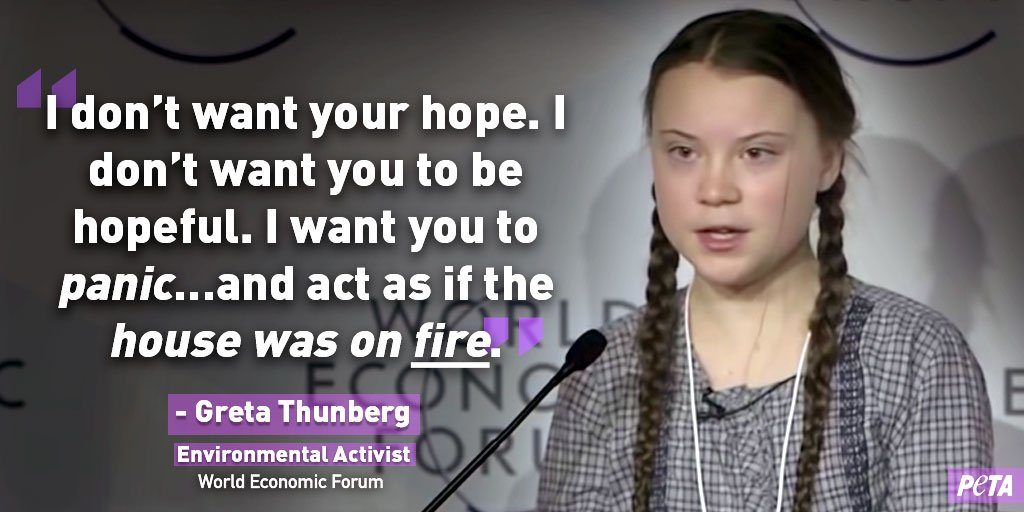The Corona Crisis has in a matter of weeks profoundly affected every aspect of life and become the perfect trigger event to kick-start the Great Digital Transformation with its ”smart” solutions and stringent surveillance measures. In the wake of this crisis we now see rekindled calls for Global Government, a restructuring of the economic system, and an ”opportunity” to include the European Green Deal in the stimulus package. This is a crisis which in record time can lead to a global Technocracy. To paraphrase Naomi Klein: this changes everything!

The Climate Change narrative, increasingly dominating the news in 2019 and a high priority at the 2020 World Economic Forum in January 2020, has now been replaced by another invisible threat, the Corona Crisis. The measures discussed to win the war against this new enemy are, however, eerily similar to the those proposed against the first. This coincidence may be explained by the fact that they both share a common origin as useful threats to usher in changes on a global scale.
With an early interest in medical research, the Rockefeller foundations and institutions have had a huge impact on the development concerning health and medicine. Rockefeller Brothers Fund’s Special Studies Project from the late 1950s, resulting in the Prospect for America: The Rockefeller Panel Reports, can be seen as a starting point with the mission to shape a new international order in all its dimensions – spiritual, economic, political, and social. This report stated that global health issues, together with oceanography and meteorology, were important areas to support due to their international dimensions and being interconnected problems that span the globe. One of the main architects of the project was Henry Kissinger. The Rockefellers, who were also involved in the creation of World Health Organization (WHO) in 1948, have since been deeply involved in sounding alarms about global health and climate issues and building support for global solutions.
Another important player is the World Economic Forum (WEF) – the leading forum for Public-Private Partnership, with membership comprising big corporations, banks and foundations. WEF’s Global Risk Programme was initiated in 2004. In 2006, WEF released the first Global Risks Report with warnings about global problems and suggestions on how to solve them with the aid from Big Business. The purpose was to ”advance the thinking around more effective mitigation of global risks”. Three main threats were identified in the first report: Terrorism, Climate Change, and Pandemics. The consequences of a lethal flu could be severe and in the end reshape the world.
A lethal flu, its spread facilitated by global travel patterns and uncontained by insufficient warning mechanisms, would present an acute threat. Short-term economic impacts would include severe impairment of travel, tourism and other service industries, as well as manufacturing and retail supply chains. Global trade, investor risk appetites and consumption demand could suffer for more extended periods. Deep shifts in social, economic and political relations are possible. (World Economic Forum, Global Risk Report, 2006)
WEF concluded that ”the impact on society might be as profound as that which followed the Black Death in Europe in 1348”. The advise was to develop a strategy to mitigate these risks:
- Top-down surveillance of threats at the global level (such as satellite monitoring of the environment);
- Effective dissemination of information from the bottom-up (such that transparency allows for the quick responses needed to contain, for example, SARS or avian flu);
- Early-warning mechanisms (for example, to provide early warning of future earthquake-induced tsunamis in the Indian Ocean);
- Appropriate mechanisms to inform the public about risk (such as the Centers for Disease Control and Prevention) to prevent “infodemics” and create appropriate expectations of risk;
- Exchanges on global best practice (including through trade associations), and advice that can be shared between governments and businesses on their risk assessments and mitigation strategies.
Another piece of advise was to harness expertise from the private sector as they were said to be ”ahead of the public sector in its mitigation of risks”.
Soon after the release of the Global Risk Report, reports about the Bird Flu (H5N1) started to make headlines and scare the public. It did, however, soon blow over without making the profound impact on society that had first been indicated. What it did do was make governments take precautionary measures in cooperation with the business community.
This became obvious with the 2009 Swine Flu pandemic. A global drama that stirred some controversy when some governments bought large stocks of poorly tested vaccine from WEF-partner GlaxoSmithKlein with the aim to mass-vaccinate their citizens to prevent the flu from spreading. A unexpected side effect of the Pandemrix vaccine administered in Europe was that hundreds of children and adolescents developed narcolepsy. The experiment received criticism for how it was handled by authorities, especially in Sweden, and was an early example of the Public-Private Partnership which WEF believes to be the solution to all the world’s ills.

Just like now, the pandemic was top focus of the media.
In 2010, Rockefeller Foundation and the consulting firm Global Business Network released the report Scenarios for the Future of Technology and International Development. The report was written with the aim of investigating four future scenarios for the world (Lock Step, Clever Together, Hack Attack and Smart Scramble). One of the scenarios, Lock Step – A world of tighter top-down government control and more authoritarian leadership, with limited innovation and growing citizen pushback, dealt with a severe Pandemic and had quite chilling similarities to the development and respons to the ongoing Corona Crisis.
From the report:
The pandemic also had a deadly effect on economies: international mobility of both people and goods screeched to a halt, debilitating industries like tourism and breaking global supply chains. Even locally, normally bustling shops and office buildings sat empty for months, devoid of both employees and customers.
It made predictions of tight control over the citizens to contain the outbreak.
The Chinese government’s quick imposition and enforcement of mandatory quarantine for all citizens, as well as its instant and near-hermetic sealing off of all borders, saved millions of lives, stopping the spread of the virus far earlier than in other countries and enabling a swifter postpandemic recovery.
China was seen as a role model and other nations soon followed their example.
During the pandemic, national leaders around the world flexed their authority and imposed airtight rules and restrictions, from the mandatory wearing of face masks to body-temperature checks at the entries to communal spaces like train stations and supermarkets. Even after the pandemic faded, this more authoritarian control and oversight of citizens and their activities stuck and even intensified.
Even the technological solutions somewhat coincide with the current situation.
• Scanners using advanced functional magnetic resonance imaging (fMRI) technology become the norm at airports and other public areas to detect abnormal behavior that may indicate “antisocial intent.”
• New diagnostics are developed to detect communicable diseases. The application of health screening also changes; screening becomes a prerequisite for release from a hospital or prison, successfully slowing the spread of many diseases.
• Tele-presence technologies respond to the demand for less expensive, lowerbandwidth, sophisticated communications systems for populations whose travel is restricted.
• Driven by protectionism and national security concerns, nations create their own independent, regionally defined IT networks, mimicking China’s firewalls. Governments have varying degrees of success in policing internet traffic, but these efforts nevertheless fracture the “World Wide” Web.
The report did, however, predict that the tight regulations wouldn’t be accepted by the public in the long run.
The following year the film Contagion was released. The script was written in collaboration with experts on diseases and had been inspired by the Swine Flu outbreak. With A-list actors dying shortly after exposure only minutes into the film, it surely helped lay a solid foundation of fear about what might come. The movie was produced by Participant Media. A company, founded by tech-billionaire Jeff Skoll, that produced Al Gore’s movie An Inconvenient Truth 5 years earlier.

In 2014, the ebola virus made headlines but was limited to West Africa. The ebola outbreak had, however, become a real concern for World Economic Forum, resulting in a report called Managing the Risk and Impact of Future Epidemics: Options for Public-Private Cooperation (written with Boston Consulting Group in 2015). Work was initiated with the ambition of building up a response to how future outbreaks could be managed through the use of Public-Private Partnerships:
There is also momentum now behind an agenda for change regarding how the global community will respond to outbreaks and epidemics in the future. The challenge is to translate this passion and commitment into public-private collaboration models that are better prepared to engage collectively in the next crisis.
That same year, WEF partner Bill Gates in a TED Talk also warned of a new pandemic and that we might not have the capacity to respond adequately to. But, on a more hopeful note, he also said that we now had technology that could make a difference. Smart phones and satellites that could be used to inform and track people’s movements and new specifically tailored vaccines. The only thing lacking, in his opinion, was a global health system and a better global coordination.
WEF continued the work at hand with advice from, among others, WHO, UNICEF, Bill & Melinda Gates Foundation, Henry Schein, Inc., GlaxoSmithKlein, and Johnson & Johnson, with the aim ”to start a dialogue between the private sector, the international community and the leaders who will form collaborations moving forward”. In 2019 they published the white paper: Outbreak Readiness and Business Impact: Protecting Lives and Livelihoods across the Global Economy. The paper concluded that:
…with increasing trade, travel, population density, human displacement, migration and deforestation, as well as climate change, a new era of the risk of epidemics has begun. The number and diversity of epidemic events has been increasing over the past 30 years, a trend that is only expected to intensify.
The call to action included:
- Build connections between in-country operators and the public sector
- Create expertise-based groups
- Improve information flow and the ability of greater private-sector contributors to connect to the response
The time was now set for the business community to step up in order to protect the planet from diseases. World Economic Forum joined forces with Johns Hopkins University and Bill & Melinda Gates Foundation (and a wide range of other stakeholders like health care supplier Henry Schein ) for a live simulation of a pandemic in October of 2019. Both the American and Chinese centers for disease control attended. The result was shocking with a total shutdown of the society followed by an economic recession and closely resembled what would unfold the months that followed. The exercise, Event 201, was soon to become a reality. The first cases of COVID19 are reported to have started in China around the same time (although the Chinese Government did not publicly admit there was a crisis until December).
That was also the time then the Green Deal package was presented by the European Commission. An ambitious plan to implement a circular economy and transform the society with digital technology in order to fullfil United Nations Agenda 2030, the Sustainable Development Goals and reach carbon neutrality to 2050. The digital transformation was seen as a ”key enabler for reaching the Green Deal objectives”.
In late November 2019 a climate emergency was declared by the European Parliament. The house was said to be on fire and the European Union would now lead the fight against ”the existential threat”. There has, however, been some opposition and not all European countries has approved the policies. Sceptic voices have questioned the climate rhetoric that ”we don’t have time” and ”the time for action is now”.

But, like an intervention from the gods, things would change dramatically. The COVID19 crisis, which was declared a pandemic by WHO March 11, has overnight introduced measures closely related to the criticized hard stance climate change policies. It has crippled the economy, put a break to consumption, and minimised travel and air traffic. People have been quarantined and many social meetings, jobs and schooling have been transferred to the digital realm. Control and tracking of everyone on a constant basis is now on the table. A new Digital Identification is being introduced worldwide (seed-funded and supported by Rockefeller Foundation, with partners such as Bill Gates’ GAVI/The Vaccine Alliance and Microsoft). This could open up for a future where vaccinated people is allowed to move more freely while non-vaccinated will get restrictions. It is a triumph for World Economic Forum, the Big Tech partners and their Fourth Industrial Revolution.
The backside of the Corona Virus prevention is the totalitarian society that comes with it. The digital fascism that Professor Dirk Helbing has warned about:
- mass surveillance
- unethical experiments with humans
- social engineering
- forced conformity (“Gleichschaltung”)
- propaganda and censorship
- benevolent” dictatorship
- (predictive) policing
- different valuation of people
- relativity of human rights
- and, it seems, possibly even euthanasia for the expected times of crisis in our unsustainable world.
Few opposing voices has been heard as the solution combines the dreams from Right-wing nationalists about tighter border control and surveillance of refugees with Left-wing ambitions to control and tax the air we breathe. Some influential players, like UN General Secretary António Guterres and Swedish Climate Czar Johan Rockström, now view the corona crisis as a golden opportunity to reach their desired sustainable technocratic future. As Rockström just wrote in Svenska Dagbladet :
Here lies an opportunity to weld together the EU Green Deal with the work to save EU from the Corona Crisis. It is the same agenda. (Johan Rockström, 28 March 2020)
In order to be saved from the economic constraints you have to adhere to the green agenda. It comes with strings attached. The crisis has also become a concern for the G20 – the leading global governance forum with close connections to World Economic Forum and the international organisations (this year led by Saudi-Arabia). Plans are now made to deliver a firm global response and coordination of the Corona Crisis (just like Bill Gates has called for).
The unprecedented COVID-19 pandemic is a powerful reminder of our interconnectedness and vulnerabilities. The virus respects no borders. Combatting this pandemic calls for a transparent, robust, coordinated, large-scale and science-based global response in the spirit of solidarity. We are strongly committed to presenting a united front against this common threat
G20 decided to develop some urgent actions.
- Strengthen WHO:s mandate to coordinate the international fight against Corona.
- On a voluntary basis commit resources to WHO:s COVID-19 Solidarity Response Fund, Coalition for Epidemic Preparedness and Innovation and GAVI, The Vaccine Alliance (created by Bill & Melinda Gates Foundation).
- Increase research on vaccines and medicines, leverage digital technologies and strengthen scientific international cooperation.
- Ask the Central Bank Governors to develop a G20 action plan in response to COVID-19. Work closely with international organisations to deliver international financial assistance.
- Ask ILO and OECD to monitor the pandemic’s impact on the employment.
- Enhance global cooperation through front-line organisations like WHO, IMF, World Bank Group and multilateral and regional banks.
- Ask top relevant officials to coordinate the pandemic’s impact, including through border management measures and providing assistance to repatriate citizens (if necessary).
The world is at war against the virus. But the nations act in a way that makes things more chaotic. Former British P.M. Gordon Brown wants the G20 to get more muscles, include the UN Security Council and act as an executive council. The similar opinion is shared by Rockström. A powerful world government, implementing the New International Economic Order and the 4TH Industrial Revolution.
This means that a real political–economic Technocracy might just be around the corner. Unless we peacefully but firmly say NO to these measures now.
 Pharos
Pharos
[…] În octombrie 2019, o repetiție generală a fost efectuată prin intermediul Evenimentul 201 exercițiu (care a implicat părți interesate precum WEF, Fundația Bill & Melinda Gates și Universitatea Johns Hopkins). O revizuire detaliată se face, printre altele, în postarea mea Criza Coronei și Agenda Tehnocratică. […]
[…] detaljerad genomgång görs i mitt inlägg The Corona Crisis and the Technocratic Agenda samt i Rockefeller och Bill Gates – monopolkapitalister med pandemier som […]
[…] Em outubro de 2019, um ensaio geral foi realizado através do Evento 201 exercício (que envolveu partes interessadas como WEF, Bill & Melinda Gates Foundation e Johns Hopkins University). Uma revisão detalhada é feita entre outras coisa na postagem A crise da Corona e a agenda tecnocrática. […]
[…] In October 2019, a dress rehearsal was performed through the Event 201 exercise (which involved stakeholders such as the WEF, Bill & Melinda Gates Foundation and Johns Hopkins University). A detailed review is done among other things in my post The Corona Crisis and the Technocratic Agenda. […]
[…] University beteiligt waren). Ein ausführlicher Rückblick wird unter anderem in meinem Beitrag „Die Corona-Krise und die Technokratische Agenda“ […]
[…] In October 2019, a dress rehearsal was performed through the Event 201 exercise (which involved stakeholders such as the WEF, Bill & Melinda Gates Foundation and Johns Hopkins University). A detailed review is done among other things in my post The Corona Crisis and the Technocratic Agenda. […]
[…] In October 2019, a dress rehearsal was performed through the Event 201 exercise (which involved stakeholders such as the WEF, Bill & Melinda Gates Foundation and Johns Hopkins University). A detailed review is done among other things in my post The Corona Crisis and the Technocratic Agenda. […]
[…] In October 2019, a dress rehearsal was performed through the Event 201 exercise (which involved stakeholders such as the WEF, Bill & Melinda Gates Foundation and Johns Hopkins University). A detailed review is done among other things in my post The Corona Crisis and the Technocratic Agenda. […]
[…] The Corona Crisis and the Technocratic Agenda […]
[…] detaljerad genomgång görs i mitt inlägg The Corona Crisis and the Technocratic Agenda samt i Rockefeller och Bill Gates – monopolkapitalister med pandemier som […]
[…] Source: The Corona Crisis and the Technocratic Agenda | Pharos […]
”launched deliberatly by forces with connection to NATO” certainly there are pointers suggestive of that, though specifically US not NATO. But as for ”and CCP” either you are deliberately misleading, or you are stark raving mad.
Hi,
There is a substantial amount of information indicating that the Covid19 Pandemic is constructed and launched deliberatly by forces with connection to NATO and CCP in China. Some of the persons involved are the same persons who tried to take down Preident Trump with the ”Russian Collusion Scam” as well as the ”Impeachment hoax”.
You can find very interesting information on ”dilyana.bg”, which is the site of an Bulgarian journalist who done much and very brave journalism. It among other things it covers US Embassy to Tblisi transports of frozen infected human blood by diplomatic curiers. In Tblisi, Georgia, US has a biological warfare research centre at an airport which is operated and controlled by US/NATO.
Best regards, Thomas
”launched deliberately by forces with connection to NATO …” definitely a possibility, but certainly more likely specifically US rather than NATO. As for ”and CCP” either that is deliberate misinformation, or you are stark raving mad.